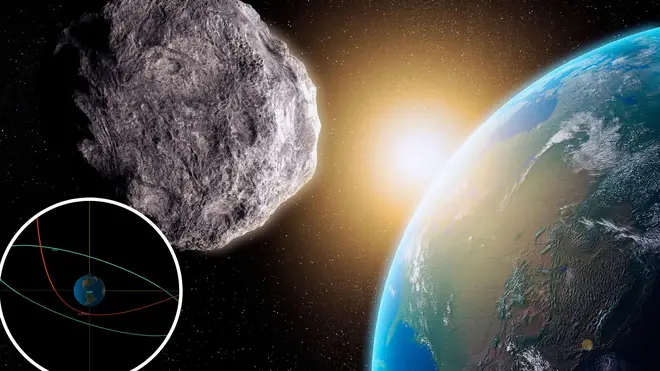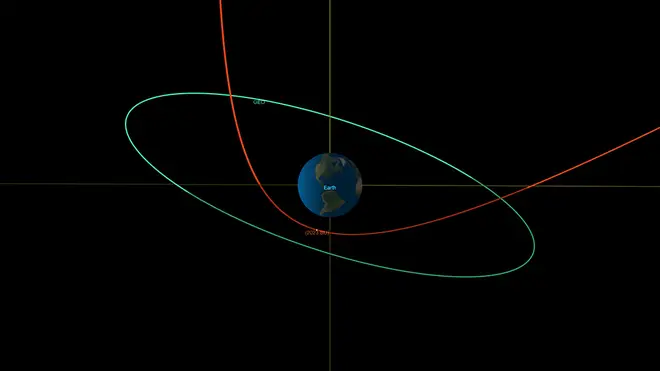
Ben Kentish 10pm - 1am
26 January 2023, 11:18

An asteroid is about to rush past Earth at a distance that's even closer than orbiting satellites in one of the nearest encounters ever.
Nicknamed 2023 BU, it will hurtle over the southernmost point of South America within a day.
It is expected to get as close as 2,200 miles – a close call by space's standards.
BU 2023 was only discovered last weekend, after an amateur astronomer in occupied Crimea came across it.
Experts then assessed its size – about 11.5ft – 28ft - and orbit to determine that it will miss our planet.
But it will get much closer than some of the satellites orbiting Earth, with some circling around as far as 22,000 miles away. It is expected to get to its closest point at 12:27am GMT on Friday.
Davide Farnocchia, a navigation engineer at who developed Nasa's Scout hazard assessment system, said: "In fact, this is one of the closest approaches by a known near-Earth object ever recorded."

Nasa said its travel around the Sun has been disrupted by coming close to Earth.
It said in a statement: "Before encountering Earth, the asteroid's orbit around the Sun was roughly circular, approximating Earth's orbit, taking 359 days to complete its orbit about the Sun."
"After its encounter, the asteroid's orbit will be more elongated, moving it out to about halfway between Earth's and Mars' orbits at its farthest point from the Sun. The asteroid will then complete one orbit every 425 days."
The agency has previously tested whether it can push an asteroid off course as part of its "Dart" programme.
Dart – or Double Asteroid Redirection Test – managed to push an asteroid called Dimorphos onto a new course after a vending machine-sized spacecraft crashed into it. Dimorphos was about the size of a football stadium.
The spacecraft was destroyed after colliding at 13,700 miles an hour.
Nasa described it as "watershed moment".
It is believed the biggest asteroids, measuring tens of thousands of metres in size – like the one that killed off most of the dinosaurs – have all been identified.